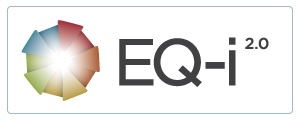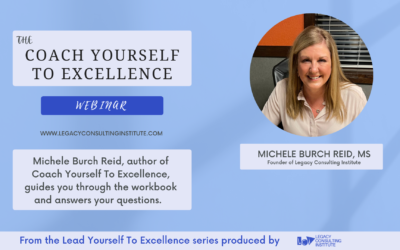Many of you that I have worked with me before know that my favorite Emotional Intelligence assessment is the EQ-i 2.0.
But first…. what is EQ? In short, Emotional Intelligence is understanding your own emotions and what you’re experiencing at that time. Being able to read the room (even if that room is only you and one other person) and being able to recognize what are the emotions they might be experiencing. Then using that information to navigate a situation in a healthy way.
Emotional Intelligence is defined by the ability to recognize, understand, and manage our own emotions, as well as recognize and understand the emotions of those we are in a relationship with or interacting with. It is also the ability to take this information and use it to navigate situations, relationships, conversations, or interactions in a successful way.
This skill is an important aspect of healthy relationships and leadership. People with strong emotional intelligence skills are able to read others, know themselves, and navigate with success.
How to Use Emotional Intelligence:
Emotional intelligence can be used in many different ways in your daily life. Some different ways to practice emotional intelligence include:
- Being able to accept criticism and responsibility
- Being able to move on after making a mistake
- Being able to say no when you need to
- Being able to share your feelings with others
- Being able to solve problems in ways that work for everyone
- Having empathy for other people
- Having great listening skills
- Knowing why you do the things you do
- Not being judgemental of others
- Having great interpersonal skills
- and the list goes on and on
Positive Impacts of Emotional Intelligence:
Developing your emotional intelligence takes a little work, but it will positively impact your work and personal life:
- Some research suggests emotional intelligence leads to better social relationships in children and adults.
- People often have positive perceptions of those with high emotional intelligence.
- Studies show that higher emotional intelligence is associated with improved job performance.
- Emotional intelligence can make you a better leader and collaborator.
- Strengthening your emotional intelligence can help you to form closer relationships with friends, family, and colleagues.
- Emotional Intelligence can help you set healthy boundaries at work and at home.
- Your motivation can also improve.
Understanding and managing emotions are integral to this, allowing individuals to build robust relationships, connect with others, and collaborate seamlessly in teams. Emotional Intelligence (EQ) goes beyond words, incorporating verbal and nonverbal cues such as tone and body language into communication. This skill enhances active listening, enabling individuals to respond thoughtfully to colleagues and clients. Moreover, empathy, a cornerstone of EQ, fosters deeper connections by acknowledging and sharing others’ feelings, creating a work environment based on trust and mutual respect.
Positive relationships in the workplace and at home are intertwined with emotional intelligence. By comprehending and managing emotions, individuals can navigate responses, avoid unnecessary reactions, and adapt to situations appropriately. This not only fosters a harmonious work environment but also contributes to increased productivity and career advancement.
In leadership roles, emotional intelligence becomes a critical factor. Leaders with high EQ inspire and motivate teams, tailor their approach to individual needs, and adeptly handle conflicts. By prioritizing emotional intelligence, leaders create a work culture that values empathy and collaboration, leading to better performance and successful outcomes for the entire team.
Want to know and measure your EQ (Emotional Intelligence)? Check these out:
More From Michele
Benefits of Practicing Relaxation Stress Management
Practicing relaxation exercises 20-30 minutes on a daily basis can produce, over time, a general feeling of relaxation and increased well-being that benefits every area of your life. With regular practice, you feel more in control, which leads to calm, realistic...
When God Pushes Us Through Our Fear
When I'm facing difficult times and feeling “super challenged", it would be easy to scream out in fear, "Good Lord why me"? Instead, I remind myself of my love for my children and His love for His children. I'm reminded of a time when my middle child wanted to learn...
The Coach Yourself to Excellence Virtual Workshop
Watch Michele talk about her Coach Yourself to Excellence Workbook during her live virtual webinar. This is a great accompaniment to Michele’s workbook, Coach Yourself to Excellence. If you have purchased the workbook, this is a great guide to enhance your experience....








